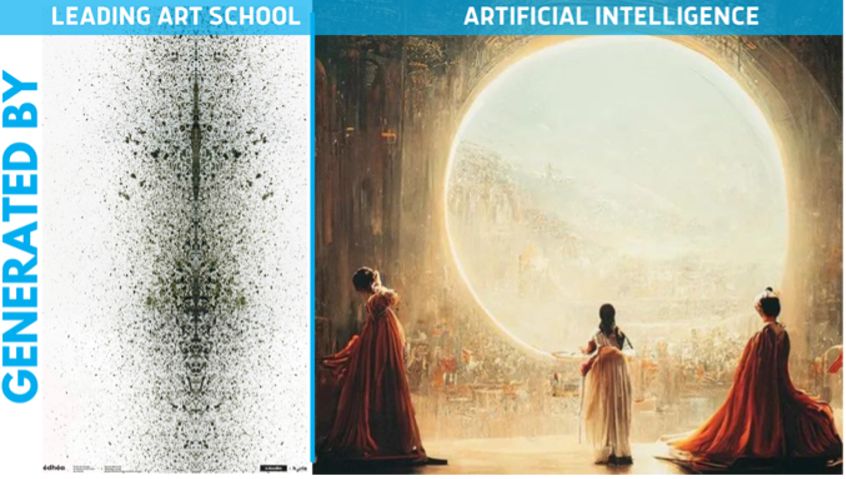Get Your Copy of "A.I. The revolution that will change our lives" Now! (Link to book: koosai.co/research)
AI, Art, and the Future of Intellectual Property
AI is not just transforming industries; it's redefining creativity itself, sparking fierce debate from art schools to courtrooms!
TECHNOLOGYLAWPUBLISHINGBUSINESS
9/12/20252 min read


Consider the current disconnect: my local art school, EDHEA in Sierre, is set to receive a new campus with a commitment of almost 50 million euros by 2026. This decision comes at a time when professions like graphic design are profoundly challenged by AI, highlighting a significant disconnection between political choices and the rapid progress of AI.
A striking example of AI's direct impact on the art world is Jason Allen's winning entry at the Colorado State Fair in 2022. He used the AI image generator Midjourney to create "Théâtre D'opéra Spatial," which won first prize in the "digital arts/digitally manipulated photography" category. This victory sparked considerable anger among artists, questioning the essence of human creativity when AI can produce stunning, award-winning art.
My blog post (1) "The Unseen Hand: Why AI Co-Authorship Misses the Point of Creativity (And Our Future)", argues that AI is not a replacement for human creativity but a sophisticated support system. It's the "next iteration of this evolution, offering new levers for human brilliance," much like how typewriters empowered literary giants like Ernest Hemingway or assistants aided Jorge Luis Borges.
However, this phenomenon fundamentally challenges the very notion of intellectual property (IP) as we've known it. Most current AI models are trained on immense datasets, often ingesting "the entirety of the web's accessible and readable content". This raises questions about whether IP still has meaning when AI "massively steals" content from platforms and artists. The "game has changed," and it's "too late to put the genie back in the bottle".
The implications extend to legal professions. Jamiel Sheikh successfully used ChatGPT to navigate and resolve a trademark opposition against Facebook, saving substantial legal fees. Conversely, a New York lawyer was ridiculed for citing fictitious AI-generated legal precedents.
Ethical concerns also arise from AI cloning of voices and images. Figures like Tom Hanks and Zelda Williams (Robin Williams' daughter) have expressed distress over AI recreations of their likenesses and voices without consent, prompting questions of "non-consent of the deceased person".
(1) Read my full blog post on "The Unseen Hand" for deeper insights: https://lnkd.in/eFSGtDv4
How do you believe we should redefine intellectual property rights and ethical guidelines in an age of pervasive AI creativity and content generation?
Disrupt sensibly.
Leveraging expertise in innovation and digital transformation globally.
© 2025. All rights reserved. Swiss Made 🇨🇭


